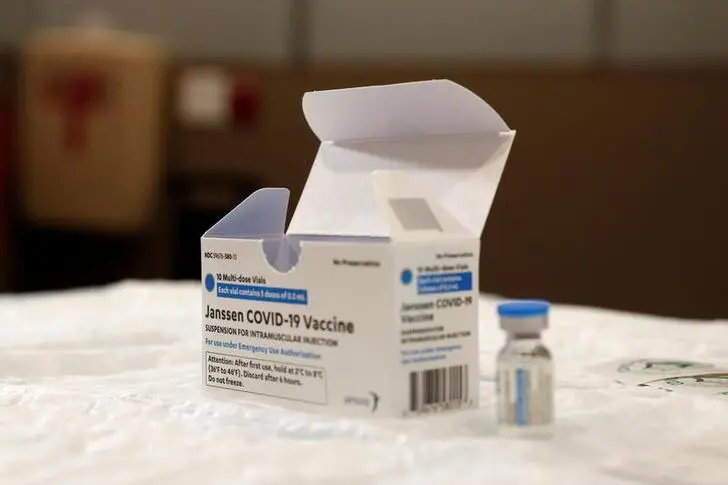PHOTO
BRUSSELS - Johnson & Johnson is expected to miss its COVID-19 vaccine supply target to the European Union for the second quarter after millions of doses were banned for use in Europe over safety concerns, an EU Commission spokesman said.
The setback could cause new delays in the EU vaccination drive, although the EU now relies mostly on the Pfizer-BioNTech shot to inoculate its population. More than half of adults in the EU have so far received at least one shot.
The European drugs regulator last week said J&J doses sent to Europe from an Emergent factory in the United States would not be used as a precaution after a case of contamination with substances used for AstraZeneca shots, which are also manufactured in that factory.
EMA said in a statement to Reuters that 17 million doses had been forbidden from being used in the bloc after that decision.
"Following the non-release of these batches, the company is not expected to be in a position to deliver 55 million doses by the end of this quarter," the EU commission spokesman told Reuters on Wednesday.
The EU has ordered a total of 200 million doses from J&J, of which 55 million were to be delivered by the end of June. The company has so far delivered around 12 million shots of its single-dose vaccine.
The spokesman declined to say how many doses J&J was now expected to deliver by the end of June. He added that the EU continued to work with the company "towards the delivery of the agreed doses overall in this and following quarters".
"Johnson & Johnson remains committed to supplying 200 million doses of its COVID-19 vaccine to the European Union, Norway and Iceland and will continue to update the European Commission and member states in a timely manner as we refine delivery timelines," a spokeswoman for J&J said in a statement.
EMA approval of Russia's Sputnik V vaccine, meanwhile, has been delayed because a June 10 deadline to submit data was missed, sources have told Reuters. The head of Russia's RDIF sovereign wealth fund said on Wednesday it expected the vaccine to be approved by the EU within two months.
(Reporting by Francesco Guarascio; Editing by Catherine Evans and Alex Richardson) ((Francesco.Guarascio@thomsonreuters.com; +32 2 287 68 17; @fraguarascio))





















